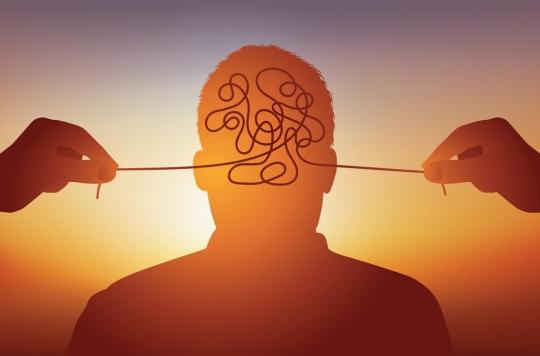It may soon be possible to forget annoying or traumatic memories by listening to sound signals during deep sleep, according to a new English study. This technique could be effective in addition to therapy.

- Previous research has shown that playing “sound cues” during sleep can help reinforce or stimulate specific memories.
- But this study is the first-ever research to produce compelling evidence that the same strategy can instead help people forget.
Traumatic, depressing, or just plain embarrassing memories tend to linger and come to the surface at the wrong times. Researchers at the University of York may have found a solution to erase this forgotten past: sound signals. Their study was published in the journal Learning & Memory.
Scientists report that having people listen to certain sounds while they sleep can help them forget specific memories. Although this discovery is still in its infancy, the study authors believe that their work opens the door to the development of new techniques aimed at weakening traumatic and intrusive memories, which could be used alongside existing therapies.
How did researchers manage to make people forget memories using sound?
The study authors taught a group of 29 participants associations between pairs of overlapping words. For example, the group had to learn the word pairs “hammer – office” and “hammer – Cardi B [une rappeuse américaine]”.
Afterwards, the participants spent the night in the sleep laboratory at the University of York. While they slept, the research team analyzed their brain waves to identify when they reached deep sleep. When this happened, the team had each participant listen to one of the previously taught words (eg the word “hammer”).
Previous studies have shown that learning a pair of words and then hearing a sound associated with that pair during sleep can improve memory for certain things. This project found that when word pairs overlapped, an increase in recall occurred for one pair, but a decrease occurred for the other. The authors of this new study conclude that it is indeed possible to induce selective forgetting through this process.
“The relationship between sleep and memory is fascinating”
“The relationship between sleep and memory is fascinating. We know that sleep is essential for memory processing, and our memories are generally better after a period of sleep. The exact mechanisms at play remain unclear, but during sleep , it seems that important connections are reinforced and unimportant connections are rejected”said one of the study’s lead authors, Dr Aidan Horner of the Department of Psychology at the University of York, in a university statement.
“This research raises the possibility that this process can be manipulated so that sleep can be used to help weaken painful memories.”added another author of the study, Dr. Bardur Joensen, a former doctoral student in the Department of Psychology at York. “The next steps for our research team are to establish how these cues cause forgetting, so we can turn the effect on and off, and whether we can use the same technique to weaken real-world memories.”he concludes.















